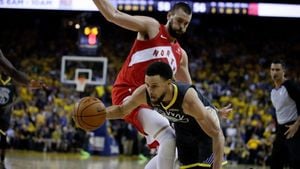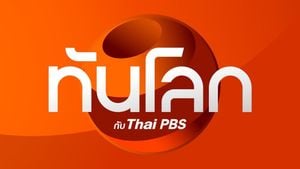Poland is gearing up for its presidential election scheduled for May 18, with candidates vying for the nation's highest office against the backdrop of significant geopolitical tensions, particularly due to the war in Ukraine. The election is seen not just as a national event, but one with the potential to influence regional stability amid Russia's aggressive maneuvers.
Recent meetings between Polish President Andrzej Duda and former US President Donald Trump at the Conservative Political Action Conference (CPAC) highlight the strategic importance of Poland to US interests. "There is no fear of the US presence in Poland decreasing; rather, there is expected to be a boost of US presence concerning Poland," said Duda, echoing Trump’s reassurances during their dialogue. Duda emphasized the importance of NATO's eastern flank and voiced hope for the revival of the 'Fort Trump' initiative, initially proposed back in 2018 for the permanent stationing of US troops in Poland.
Concerns extend beyond military presence to regional security imperatives. With Poland sharing borders with Ukraine, Russia, and Belarus, its leaders stress the need for decisive commitments from the US. Szymon Hołownia, one of the presidential candidates, stated, "It’s time for action," urging the US to define its stance on the Russian-Ukrainian conflict. Hołownia's calls for clarity come as Poland grapples with the realities of being neighbors with Ukraine, which has been ravaged by conflict, and Russia, known for its expansionist tendencies. His proposals include using frozen Russian assets to aid Ukraine, showcasing his commitment to bolstering local defenses and standing firm against Russian aggression.
On the other side of the political spectrum, the far-right candidate Grzegorz Braun has made headlines with his controversial proposals. Braun pitched his election manifesto as centered on prioritizing national security, introducing tax cuts, and reforming the education sector by adopting elements of the US presidential system. He has drawn significant criticism for his populist rhetoric, including dismissing financial aid for Ukrainian refugees and espousing antisemitic views. His approach has raised alarms about rising nationalism and potential shifts away from Poland's traditionally supportive stance toward its neighbors.
Compounding these concerns, Hołownia also took aim at the rise of the Alternative for Germany (AfD) party, voicing worries about its pro-Russian leanings and its influence growing within Poland. He labeled these developments as dangerous and called for stronger, truth-driven leadership to counter such trends.
National security remains at the forefront of the electoral discourse, with each candidate presenting varying visions of how Poland should navigate the current geopolitical climate. The differences between the candidates highlight the tension within Polish society on how best to approach the security challenges posed by both Russia and the ramifications of the Ukrainian conflict.
Further complicate matters is the stance of another contender, Sławomir Mentzen, who has been accused of promoting pro-Russian policies reminiscent of AfD's narratives. His public statements have drawn ire and caution from other candidates, emphasizing the divisions within the Polish political framework.
With election day approaching, the candidates are fully aware of the stakes involved. Historical ties to NATO and the United States resonate deeply within Polish defense discussions, driving the electoral campaigns of candidates. The globally significant issues surrounding energy dependency, military cooperation, and foreign policy underline the impact of this election, extending far beyond Poland's borders.
Those followers of Polish politics recognize the potential for the upcoming contenders to alter long-standing agreements depending on how successfully they resonate with voters concerned about national sovereignty, economic support, and international alignment.
Various factions await clear communication from the leading candidates, whose positions on key issues could determine the course of Poland's role within NATO and its interactions with the European Union. Insights from the National Security Council meetings following Duda's Washington visit are eagerly anticipated to clarify America's commitment to Poland and, by extension, to Ukraine.
With unique perspectives and contentious policies laid bare by candidates such as Hołownia, Braun, and Mentzen, Poland's political future seems poised on the edge of change. Each debate and election stop could tilt the scales toward more expansive US involvement, or trigger shifts toward isolationist nationalism within its current framework of alliances. Voters will soon decide which vision resonates best, not just for Poland, but for the broader European conflict with Russia looming large.



